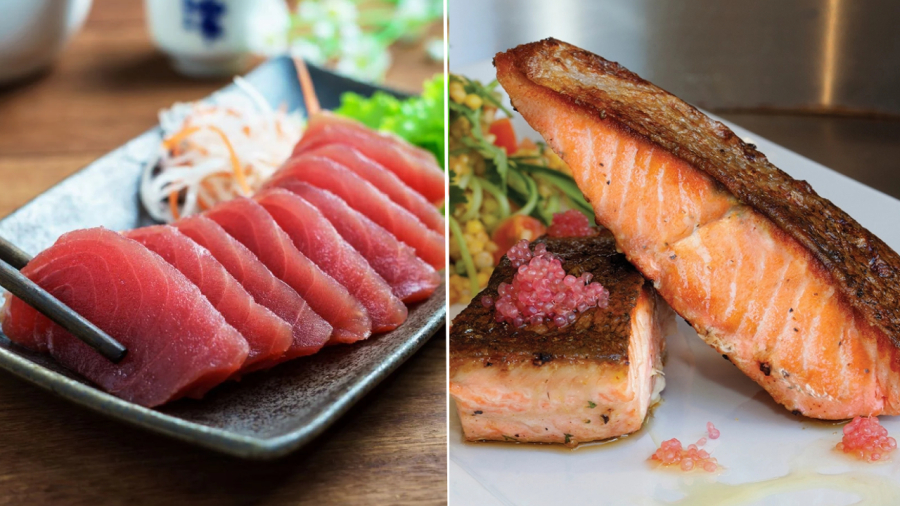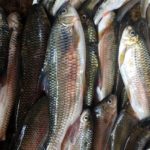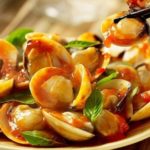When Hungry
For those with gout, it’s best to avoid eating fish when hungry. This is because the purines found in fish can cause a rapid increase in uric acid levels in the body, leading to tissue damage and gout flares.
It is recommended to pair fish with balanced dietary choices such as green vegetables and rice to ensure that purine levels don’t spike drastically within a short period, potentially affecting one’s health.
When Taking Cough Medicine
Individuals suffering from a cough, especially a sea fish allergy, should refrain from consuming fish to prevent any allergic reactions that may worsen their coughing.
Fish is rich in histamine, and an excess of this compound in the body can affect blood circulation and lead to histamine allergies, resulting in uncomfortable symptoms. As cough medicine contains monoamine inhibitors, consuming sea fish alongside it may intensify coughing.
Additionally, certain antibiotics, antihypertensive drugs, anti-inflammatory medications, antidepressants, and Parkinson’s drugs also contain monoamine. It is advisable not to combine these medications with fish consumption to ensure optimal drug efficacy.

There are times when you should avoid eating fish for your health’s sake.
When Allergic
It is best to refrain from consuming seafood and fish when experiencing allergic reactions. These foods can exacerbate allergies, leading to symptoms such as hives, itching, vomiting, and a rapid heartbeat. Histamine in fish is believed to be the culprit, as it enters the body and affects metabolic and blood circulation processes, intensifying histamine allergy symptoms.
When Experiencing Internal Bleeding
If you are prone to bleeding disorders or frequently experience nosebleeds and internal bleeding, it is advisable to avoid eating fish. This is because fish contains eicosapentaenoic acid (EPA), which can inhibit platelet aggregation in the body, potentially worsening bleeding conditions.
When Treating Liver Cirrhosis
Individuals with liver cirrhosis typically have low platelet counts, which can affect blood clotting. To prevent further bleeding complications, it is recommended to limit fish consumption, especially sea fish, as they are rich in clotting agents. In the event of internal bleeding or uncontrollable bleeding, this could pose a life-threatening situation.
Additionally, consuming certain types of sea fish, such as sardines, herring, or tuna, can overwork the liver as it attempts to filter out toxins, potentially worsening the condition.
gout-flares/’ title=’“Busting Gout: A Summer Guide to Preventing Gout Flares.”’>“Busting Gout: A Summer Guide to Preventing Gout Flares.”
Who Should Avoid Eating Water Spinach?
Who Should Avoid Eating Basella Alba (Asian Spinach)? Individuals with kidney stones, gout, and stomach issues are advised to refrain from consuming this vegetable to prevent aggravating their conditions and risking further health complications. Discover the reasons why these specific groups should steer clear of Basella Alba in the full article below.














